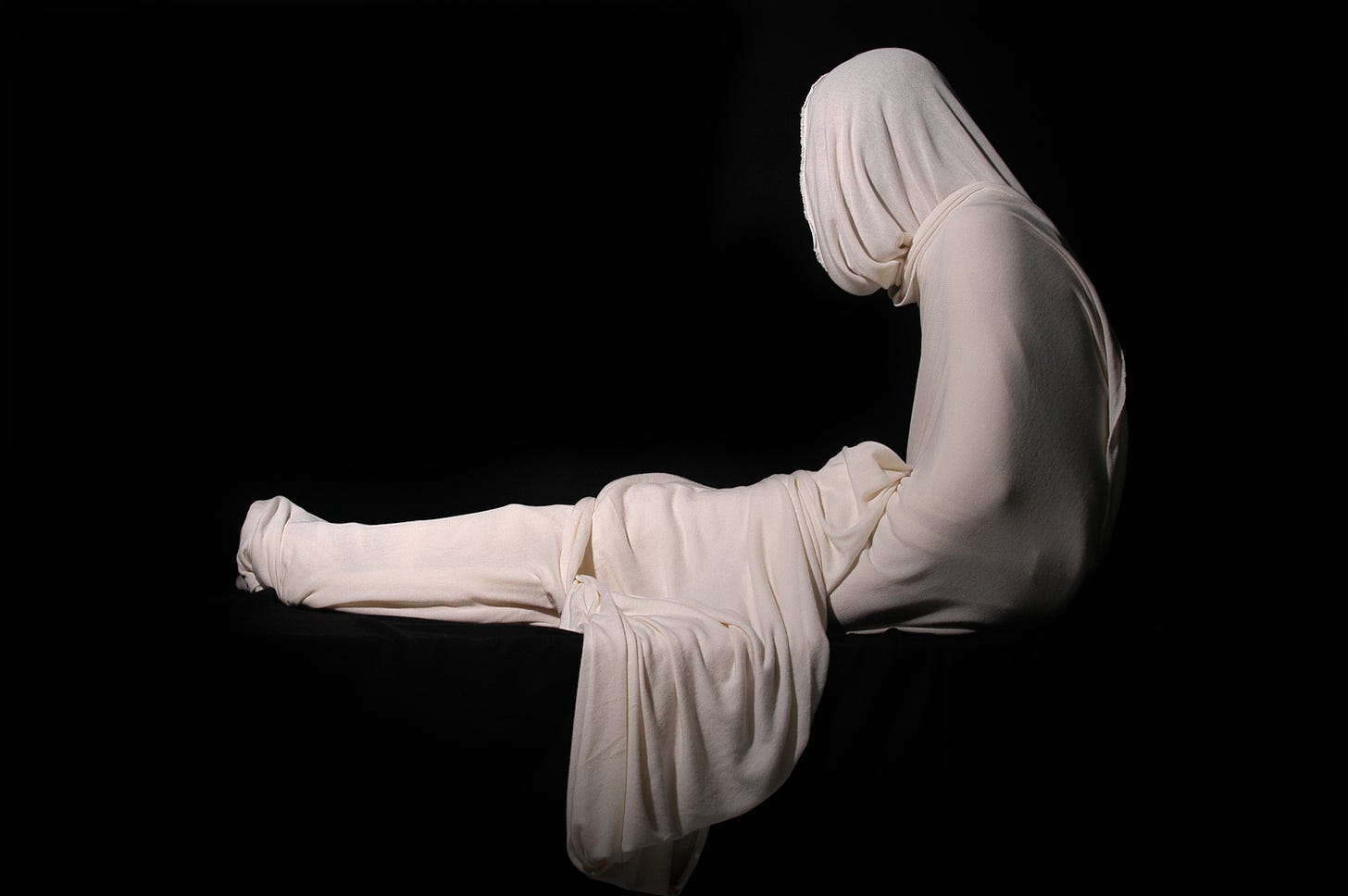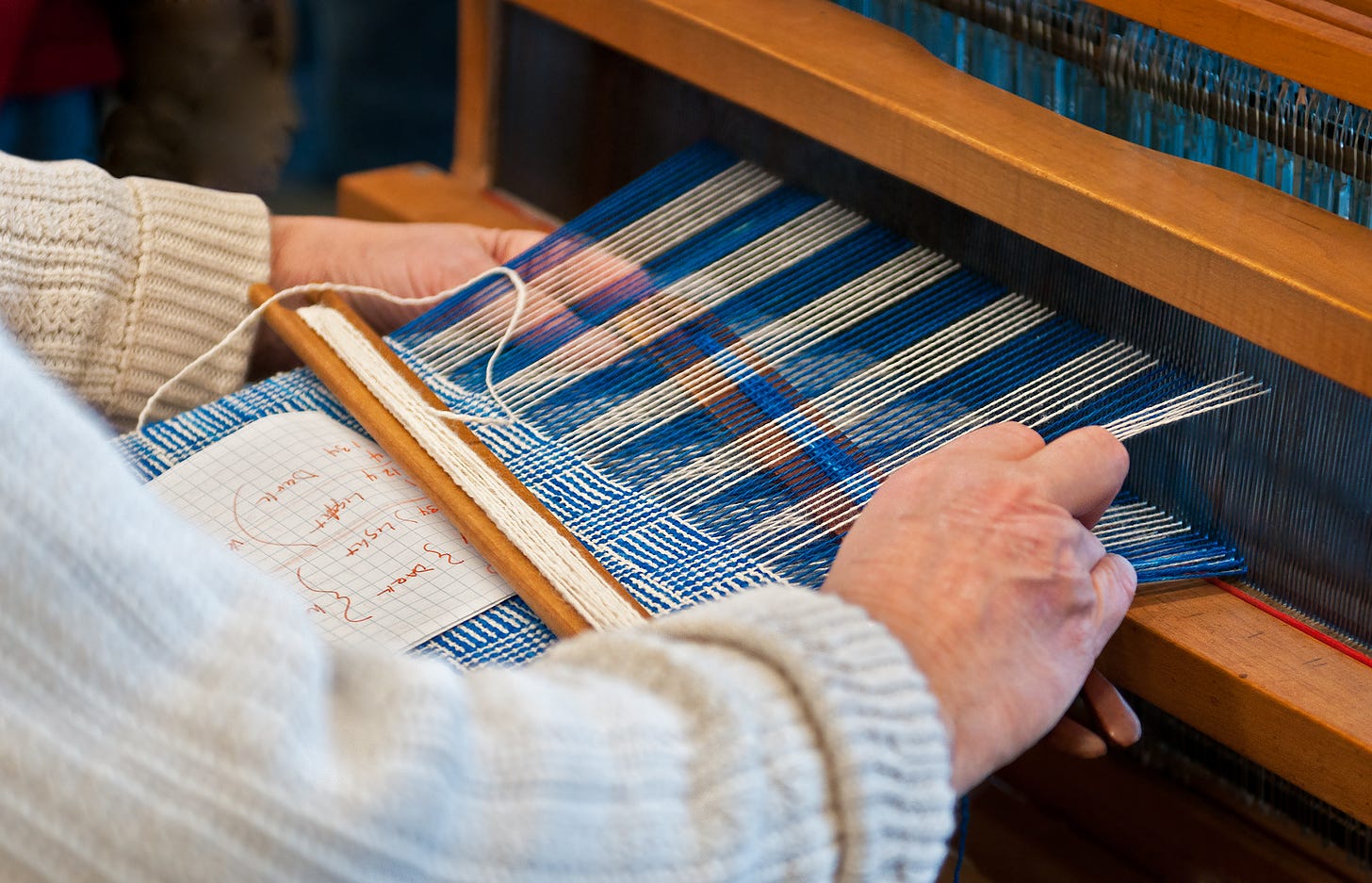If you’d like to watch and hear me preach this sermon it starts at 33:40.
The biblical text is here.
An All Saints sermon on the raising of Lazarus;
1 thing I noticed, about a dozen things I have questions about and 1 image that I cannot shake.
Here we go.
First, one thing I noticed:
Her beloved brother Lazarus has died and in her grief, Mary, runs out to the road and confronts Jesus for taking way too long to get there. She falls to her knees and says “if you were here my brother would not have died”. She looks up and says thanks for nothing.
That’s just how her own grief manifested.
Because, the truth is, grief doesn’t actually have neat little predictable stages. In fact there is nothing neat or predictable about it, whatsoever.
You who have been there know that grief can vacuum up all the oxygen in spaces we used to be able to breathe in. It can rearrange every room that used to be familiar. Grief can change gravity itself. Grief can disfigure us. And for Mary it looked like saying to Jesus if you were here my people wouldn’t die.
I feel this. I know what it is like to reach for explanations and causes as a salve to soothe the anxiety of living in a chaotic and unpredictable world. And how this same impulse to find explanations leads me to the next logical desire – which is to assign blame. When I am in pain I prefer to have someone to blame if at all possible. A friend. A stranger. An enemy. The patriarchy. The church. Or more often than not, myself. And if that doesn't make me feel “better” then there’s the classic option of blaming God. If you’d been paying better attention, God, this wouldn’t have happened.
Grief can make us unrecognizable. No wonder people want to avoid it. And avoid people who are experiencing it.
So here’s the 1 thing that stood out to me this week: I noticed for the first time how Jesus himself responded to grief.
It’s hard to imagine grieving a friend and then having his family blame you for his death. Yet, when Mary runs out to the road and says “If you were here our brother would not have died” –pay attention to the fact that we hear no rebuke from Jesus. No defensiveness. When Jesus stands in the road at Bethany having been confronted by his grieving friends, he doesn’t try and minimize their loss, or criticize their faith. He doesn’t say pointlessly positive things so that he can make himself feel better. And he certainly, most certainly does not say “maybe Lazarus died because God needed another angel in heaven” or any other related nonsense.
You know what Jesus does? He simply asks them questions, allows himself to be moved, and cries with them.
Real-life tears made of the same salt and water as our own run down his face when he is moved by the wrenching reality of death and separation. Jesus the savior of the world, Jesus, God made flesh, shares with us having a heart that can be darkened by grief.
So if you are here today on this All Saints Sunday and you are mourning, if your own heart is weighed down by the death of someone you love, please know that Jesus, the man of sorrows has gone before you in this.
Which means that when you are grieving so deeply that you feel like you can no longer breathe, you are known in your grief by the same God who breathed into dust to create you in the first place and who will speak your name in the moment of your own death. In other words consider that maybe your grief is actually holy to God.
But also know that it is into exactly that kind of disfiguring grief that Jesus speaks words of eternal life. Just a couple verses earlier he says to those who loved Lazarus “I am the resurrection and the life. Those who are in me will never die”. It’s as if in the raising of Lazarus, before Jesus defeats death for good, he just gives it a really good slap in the face first.
So yes, the 1 thing that stood out to me this week, is how Jesus responded to grief. But then after noticing something about Jesus, I was still left wondering a lot of things about people.
Like, I wonder if Lazarus walked out of his tomb filled with resolve.
Like now that he has another chance at this thing, he will never take his sisters for granted again. He will always say please and thank-you. He will not squander one more precious moment of life getting angry in traffic.
And if so, then I wonder how long that lasted.
And if he had really been changed by the experience, I wonder if Mary and Martha kept treating him as though he hadn’t, and he didn’t know how to stop playing the part because he didn’t want to make them uncomfortable, but that was killing him all over again.
And this week I also started to wonder about the folks who had come around Mary and Martha when they were grieving –I mean, what’s it like to be sitting with a bereaved friend one minute, and the next minute you’re being asked to unbind their brother because Jesus raised him from the dead. After the shock of what they were seeing wore off, I wonder if they felt effervescent. Like the world was filled with helium and they couldn’t stop laughing.
And I wonder if on the walk home, when the elation of that, when the wonder and joy of it subsided if replacing it was the tiniest, just the absolute faintest whiff of resentment. I wonder if, when their role went from comforter of the bereaved to celebrator of the resurrected, if they were left secretly thinking of their own son who died
and who was not raised.
Did the question, why Lazarus seep into their hearts from cracks left behind from it’s own breaking?
Why him and not my son or my friend or my husband. Why him?
I wonder if, when they would see Lazarus around town, if they scanned him for worthiness. In other words, did they second guess the guy who got the second chance. Look at him, wasting it all. Never married. Doesn’t work, his sisters still take care of him. I think I saw him vaping, behind the hardware store. If my Joey had been the one to be brought back from the dead he would have graduated from Harvard Law by now.
Did they do that thing where they gave themselves points for hypotheticals?
To be a human is to have so many foibles and inconsistencies that we lose count. There is simply no shortage of ways in which human beings disappoint ourselves and each other and no shortage of ways in which life itself can feel like it’s failing us.
Which leads me to the 1 image I had all week that would not leave me:
So all week as I’ve thought about grief and blame and human failings and resurrection and eternal life, I’ve had this image of God as a sort of divine weaver, and all of life and death is happening on God’s celestial loom.
Like when in the midst of grief Jesus says I am the resurrection and the life, he is saying that in him God is weaving God’s self throughout these inconsistent, jagged, weepy moments in life, like the weft of a loom. God continually fastening himself to us– picking up dropped stitches, and lost things, and helpless moments. God is continually binding up the broken hearted, and pulling taut the threads of our broken humanity. All of it. All who have died and all who have lived. All the disappointments and celebrations. All the things in life which we think are hopeless. That of which we think, there’s surely already a stench so why bother?
This marriage is too far gone. My adult children are too distant. That friendship is in too much disrepair. My body is too old. My faith is too shaky.
But eternal life means that nothing and no one is lost to God.
Which means we who blame God, and say horrible words in our grief, and think selfish little spiteful things about other people, we who shut down, and in our own grief twist bands of blame around ourselves like grave clothes, we who blow every 2nd chance,
we are they whom God is binding to himself for eternity. That’s Us.
All us beautiful sinners loved so madly by a God that refuses to be without us, even in death. Thanks be to God that this is eternal life.
Amen.
If you’d like full access here, but a paid subscription isn’t for you, shoot us an email with “free subscription” in the subject line to: shamelessmediallc@gmail.com and we will hook you up for free!
Where to find me:
Nov 7 -Cleveland, Oh - Case Western University 4p –Finite Futures Lecture Series (there’s a waitlist but come anyway - plenty of room)
Sat Nov 16-17 Little Rock, AR - Westover Hills Presbyterian Church
Sat Nov 16 7p Cotham Memorial Lectures
Sun Nov 17 10:30a preaching, 7p – fireside chat
Tues Nov 19 – Nashville, Tn Westminster Presbyterian Church – “An Evening With Nadia Bolz-Weber”
Sun Nov 24th – Denver, Co - St John’s Episcopal Cathedral 8a, 10:30a, 5p - preaching






Yesterday I was grieving my daughter who is living. She's a fentanyl addict. So much grief for the loss of all the parts of her. Your words were timely. My head knows he is in this with me. My heart fails to recognize it some days. He is in the very fabric of our lives. Thank you, Nadia.
Thank you Nadia - I am a pastor and it seems the burdens just keep getting heavier. I have doubts that make me question my calling... And then, I read something you've written - a sermon, a thought, and it speaks to my heart. I did my own sermon on these verses yesterday and spoke of how Jesus' grief legitimizes our own but I love how you say it. You are a treasure. All the best to you and your ministry this week.